Progressive Achievement Tests (PAT)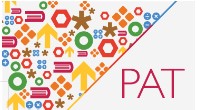
https://www.acer.edu.au/pat
Maths, spelling, punctuation and grammar, reading and science
The ACER Progressive Achievement Tests (PAT) are widely used in schools across Australia to monitor progress in key skill areas. All tests are available in print or online and test content is regularly updated.
|
PM Benchmarking
http://www.nelson.com/pmfamily
Reading and writing
The renowned PM Collection features over 1,000 accurately levelled fiction and nonfiction titles from levels 1–30, ensuring enjoyment and literacy success for children.
|
On Demand Testing
http://www.nelson.com/pmfamily/
Mathematics (Number and algebra, Measurement and geometry)
English (Reading and spelling)
The On Demand testing program is a valuable tool for schools, enabling them to conduct assessment in a reliable and standardised manner. Tests are designed to link to the outcomes of the Australian Curriculum, whilst retaining Victorian Essential Learning Standards (AusVELS). These tests have been constructed by the VCAA and are on offer for schools to download. Once completed, tests are computer marked and a range of reports are available for teachers to immediately view and analyse the results.
|
Fountas & Pinnell
http://www.heinemann.com/fountasandpinnell
Reading
Fountas & Pinnell Literacy™ is a comprehensive, systematic approach to high-quality literacy instruction. The Fountas & Pinnell Benchmark Assessment Systems are accurate and reliable tools to identify the instructional and independent reading levels of all students and document student progress through one-on-one formative and summative assessments.
|
Magic Words
http://magicwords.com.au/
Reading
Magic Words uses a variety of exciting activities and card games to reinforce the most important words in reading and writing. These best-selling products are ideal for playing at home around the kitchen table or in the classroom.
|
BURT Word Reading Test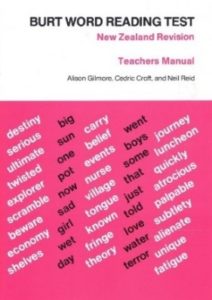
http://www.nzcer.org.nz/
Reading
The BURT Word Reading test is a quick and easy assessment of word recognition skills to enable a broad estimate of a child’s reading achievement. It should be used in conjunction with other reading assessments. This test is comprised of 110 words, each graded in order of rough difficulty. The child being tested will then simply read through as many of the words as they can. They stop when they fail to read 10 consecutive words. From here, the child is then graded on how many words they got correct and given an appropriate reading age based on that information. The highest score is a reading age of 14.3.
|
Neale Analysis of Reading Ability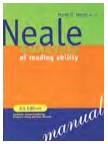
https://shop.acer.edu.au/acer-shop/group/NEA
Reading
The Neale Analysis of Reading Ability (NARA) is a test of oral reading, based on a series of short narratives, providing summative measures and detailed diagnostic information. It measures the accuracy, comprehension and rate of reading in pupils from the age of 6 to 12 years. It provides a comprehensive gauge of a pupil’s interest in reading. The individually administered assessment consists of parallel forms for testing and extension passages for use with more able or older pupils. Two alternate standardised tests enable the monitoring of a pupil’s performance without them becoming too familiar with the passages, in addition to one diagnostic test.
|
PROBE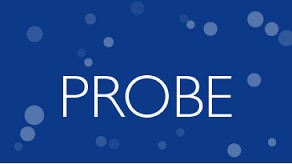
https://shop.acer.edu.au/acer-shop/group/PROBE
Reading, listening and writing
PROBE is designed to assess reading accuracy, reading behaviour and in-depth reading comprehension. The assessment covers six defined areas of reading comprehension which are: literal, reorganisation, inference, vocabulary, evaluation and reaction.
|
Tests of Reading Comprehension (TORCH)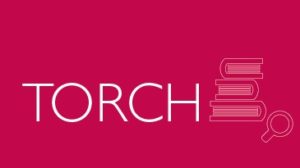
https://shop.acer.edu.au/acer-shop/group/TORCH-3
Reading
A professionally developed reading assessment that has been thoroughly pilot tested in Australian schools. It assists teachers to interpret performance in reading comprehension skills and provides the opportunity to compare student performance with an Australia-wide sample of over 7000 students from years 3 to 10 and special needs groups.
|
Sutherland Phonological Awareness Test – Revised (SPAT-R)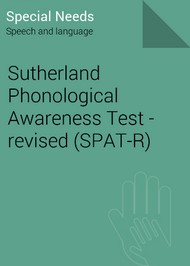
https://shop.acer.edu.au/sutherland-phonological-awareness-test-revised-spat-r
Reading
SPAT-R is a simple and comprehensive standardised test that provides an overview of the phonological awareness skills required for early literacy development, used from prep to year 4. Skills tested include sound identification, blending, segmenting, manipulation, nonword reading and spelling. Features in-depth analysis of nonword spelling errors and provides a normed diagnostic picture of emerging phonemic awareness skills.
|
South Australian Spelling Test (SAST)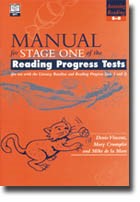
https://shop.acer.edu.au/group/0486314124/5
Spelling
The South Australian Spelling Test (SAST) is a standardised test of spelling achievement for students from 6 years to 15 years. The main purpose of this test is to provide a quick screening instrument to enable teachers to determine the spread of spelling ability in their classes and to identify students who require additional help.
|
Reading Progress Test (RPT)
https://shop.acer.edu.au/group/RP/2
Reading
This assessment is used to assess pre-reading and early reading skills through administration of a Literacy Baseline test in the first year of school and two reading comprehension tests for the second and third year of school.
|
Single Word Spelling Test (SWST)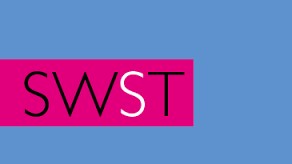
https://shop.acer.edu.au/acer-shop/product/990SWS
Spelling
SWST is intended for use in identifying gaps in a student’s knowledge of word components and for tracking student progress over successive years. The results of the spelling tests inform teachers of a student’s immediate learning targets/goals and are used for explicit planning for spelling instruction. The spelling tests are graded in difficulty and guidelines are provided for the analysis of a student’s errors in the tests. The intention of the error analysis is to give a detailed assessment of a student’s spelling knowledge.
|
Waddington
http://www.wadd.com.au
Reading and Spelling
These group-based tests are easy to administer and provide very detailed diagnostic information beyond a student’s reading and spelling age. Teachers will quickly obtain a valuable snapshot of all students in a class/school, as well as critical diagnosis for special cases.
|
Lexile
http://www.mylexile.com.au/
Reading
The Lexile Framework for Reading is a system that can help determine the reading level of any written material measuring Semantic Difficulty (the difficulty of the vocabulary) and Syntactic Complexity (the complexity of the sentences). The Lexile Framework finds the right books for students by measuring readers and texts on the same scale. Lexile measures are the global standard in reading assessment and are accurate for all ages, including first and second language learners.
|
Sound Waves
http://www.fireflyeducation.com.au/soundwaves
Phonemic approach to spelling
The Sound Waves approach uses a sound-to-letter strategy, which acknowledges that sounds can be represented in more than one way. The Sound Waves approach focuses first on the basic units of sound in English – phonemes. It then explores the letters that represent these sounds and how they can be put together to form the words in English. The phonemic approach to learning English is effective because it replaces rote learning with strategies for reading and writing, using explicit teaching and play-based learning activities. Sound Waves is a dynamic program consolidating phonemic awareness orally, aurally and kinaesthetically.
|
Big Write and VCOP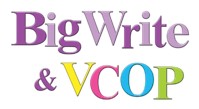
http://www.andrelleducation.com.au/
Writing
Big Write and VCOP is designed to bring the fun back into writing, to make the children want to write and to be continuously challenged throughout the writing journey. Through games, activities, writing tasks, conversations and discussions, students will learn not only where their abilities lie in a fun and engaging way, but also the steps they need to take, in order to continue to improve.
|
Renfrew Action Picture Test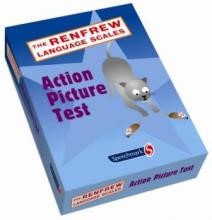
https://www.speechmark.net/action-picture-test-revised-edition
Grammar
The test has been designed to fulfil the need for a standardised test that, in a short and simple form, would stimulate children to give samples of spoken language that could be evaluated in terms of information given and the grammatical structures used. Catherine Renfrew’s three tests have been used for many years and provide a means of assessing children’s speech and language. All tests are suitable for use with 3-8 year olds and are norm referred to enable therapists to produce comparative results.
|
Phonics Australia
http://www.phonicsaustralia.com.au/
Reading and Grammar
These resources provide an explicit and systematic approach to reading and spelling. This structured approach is beneficial for both initial reading instruction and for students with reading difficulties. All the Phonic Book and Little Learners resources provide a sequential phonic progression which allows the student to learn to read as they learn the letters of the alphabet. With this Synthetic Phonic approach, the student learns, for example, the sound-spelling correspondences of the letters s, a, t, i, m and then blends these sounds together to form VC (Vowel, Consonant) and CVC (Consonant, Vowel, Consonant) words. These reading books support the student by providing only content that is decodable.
|
Cars & Stars
http://www.hbe.com.au/
Reading
CARS & STARS Plus is a comprehensive reading program spanning 10 levels, P–H. Levels P and AA relate to pre-reading, are teacher-guided, and focus on listening and visual skills across 6 strategies.
Level A covers 8 strategies and levels B–H, the core of the program, cover 12 strategies each.
– The Placement component puts students in the correct level based on their reading ability, not their year level. It can be conducted online or as a paper-based version.
– All 12 strategies are taught through explicit direct instruction.
– Pretests, Benchmarks and Post Tests provide teachers with updates throughout the program, providing data on where students begin, how they progress and where they end up at the conclusion of the instructional year.
|
Oxford Word List
http://www.oxfordwordlist.com
Reading
Based on children’s usage, words they know orally and visually, rather than being derived from a study of words in children’s reading texts.
|
ACER General Ability Tests (AGAT)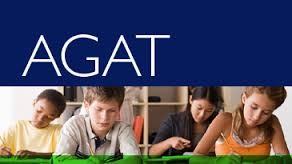
https://www.acer.edu.au/agat
Verbal, numerical and abstract (visual)
AGAT is a thoroughly researched and nationally normed assessment instrument. Each test includes an equal number of verbal, numerical and abstract reasoning items. AGAT provides a multifaceted estimate of students’ general intellectual ability and aptitude and can be administered individually or to a large group. A common scale for all nine tests gives teachers the flexibility to match test level to ability and monitor development over time. They include percentiles and stanines that allow for comparison with a national norm group at different year levels, and provide scores for different strands (Verbal, Numerical and Abstract reasoning) to help identify specific strengths and development needs.
|
Jolly Phonics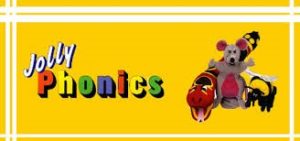
http://jollylearning.co.uk/overview-about-jolly-phonics/
Reading and writing
Jolly Phonics is a fun and child centred approach to teaching literacy through synthetic phonics. With actions for each of the 42 letter sounds, the multi-sensory method is very motivating for children and teachers, who can see their students achieve. The sounds are taught in a specific order (not alphabetically). This enables children to begin building words as early as possible. Using a synthetic phonics approach, Jolly Phonics teaches children the five key skills for reading and writing. The programme continues through school enabling the teaching of essential grammar, spelling and punctuation skills.
|
QuickSmart
https://simerr.une.edu.au/quicksmart/pages/index.php
Reading and numeracy
The QuickSmart program is a theory-based educational intervention for middle-school students, specifically, for those in Years 5, 6, 7 and 8, designed to enhance students’ fluency in reading and numeracy by improving their information retrieval times. Students are selected to participate in this program if they have a record of experiencing persistent and significant learning difficulties in these areas, and have been resistant to academic improvement despite previous attempts to overcome their learning problems. The primary aim of the QuickSmart program is to increase fluency in reading and numeracy for students with learning difficulties in the middle-school years. Focusing on automaticity in reading and numeracy allows the working memory more time and cognitive resources to undertake higher-order processes, such as comprehension and problem solving.
|
Words Their Way
http://www.pearson.com.au/educator/primary/browse-resources-online/english/words-their-way/
Spelling
Words Their Way and its companion volumes enable you to assess, clearly identify and document each student’s spelling stage, and tailor activities to improve your student’s spelling knowledge. Words Their Way is a teacher-directed, student-centred approach to vocabulary growth and spelling development whereby students engage in a variety of sound, pattern and meaning activities, sorting pictures and words. It caters for differentiated learning in the classroom, rather than a one-size fits all solution.
|
Sound Knowledge
http://www.education.vic.gov.au/school/teachers/teachingresources/discipline/english/reading/Pages/asst5to8letter.aspx
Reading
This assessment can be used to identify whether a student is having difficulty in recognising and naming letters and identifying the sounds letters make in words. The assessment includes four interrelated parts – Recognising letters and corresponding letter names with sounds, identifying letters in a given text, writing letters in lower and upper case and predicting a word in a sentence by using its first letter.
|
Little Learners Love Literacy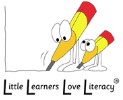
http://littlelearnersloveliteracy.com.au/
Reading
Little Learners Love Literacy focuses on ‘phonemic awareness and alphabet knowledge’, giving children the skills they need to read, spell and write with confidence. This sequential program has 7 stages and it is developed from evidence-based literacy research. Children start ‘reading’ real stories once they know the first 8 ‘sounds’ introduced in our core resource, the Milo’s Birthday Surprise storybook.
|
Middle Years Ability Test (MYAT)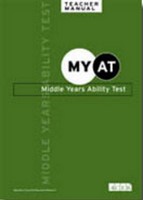
https://shop.acer.edu.au/acer-shop/group/MYAT/X
Literacy, numeracy and non-verbal
The Middle Years Ability Test (MYAT) is a test of general ability designed to assist teachers in their assessment of students aged 10–15 years. MYAT is a completely revised and updated edition of the ACER Intermediate Tests F and G. As well as verbal and numerical reasoning items in the tradition of the ACER Intermediate Tests, MYAT includes non-verbal (or abstract) reasoning items, giving a more complete picture of students’ general ability.
|
Individual Knowledge Assessment of Number (IKAN)
http://nzmaths.co.nz/ikan-forms
Mathematics (Number Sequence and Order, Fractions, Place Value, and Basic Facts)
IKAN is an assessment tool to be used to assess a student’s knowledge stage on the Number Framework. It has been developed as an alternative to using the knowledge section of the diagnostic interview (NumPA). The knowledge stages describe key items of knowledge which students need to know and be able to quickly recall without needing to strategize.
|
I Can Do Maths (ICDM)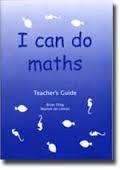
https://shop.acer.edu.au/acer-shop/group/CAN
Mathematics
ICDM is a test of beginning mathematical ability in the first three years of school. It is orally administered to students individually or in small groups and consists of items that are presented in the form of pictures. It contains open-ended and multiple-choice questions.
|
Schedule for Early Number Assessment (SENA)
http://www.curriculumsupport.education.nsw.gov.au/countmein/assesment.html
Mathematics
SENA is a diagnostic/screening assessment for younger primary school students and measures where students are in their counting abilities. The assessments take the form of diagnostic interviews and currently focus on numeral identification, counting forwards and backwards, subitising, addition and subtraction, multiplication and division and place value.
|
Essential Assessment
https://www.essentialassessment.com.au/
All subjects
Essential Assessment is a leading provider of a unique Australian Curriculum, Victorian Curriculum and NSW Syllabus Numeracy and Literacy assessment and curriculum model that delivers a whole school approach to formative and summative assessment for Australian schools. Essential Assessment is a smart and differentiated online assessment and curriculum model that diagnostically assesses each student in relation to the curriculum and provides them with aligned curriculum to grow each student’s knowledge from their current understanding.
|




























